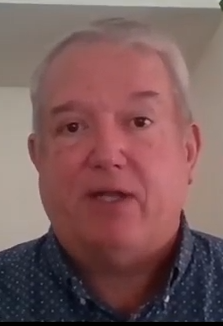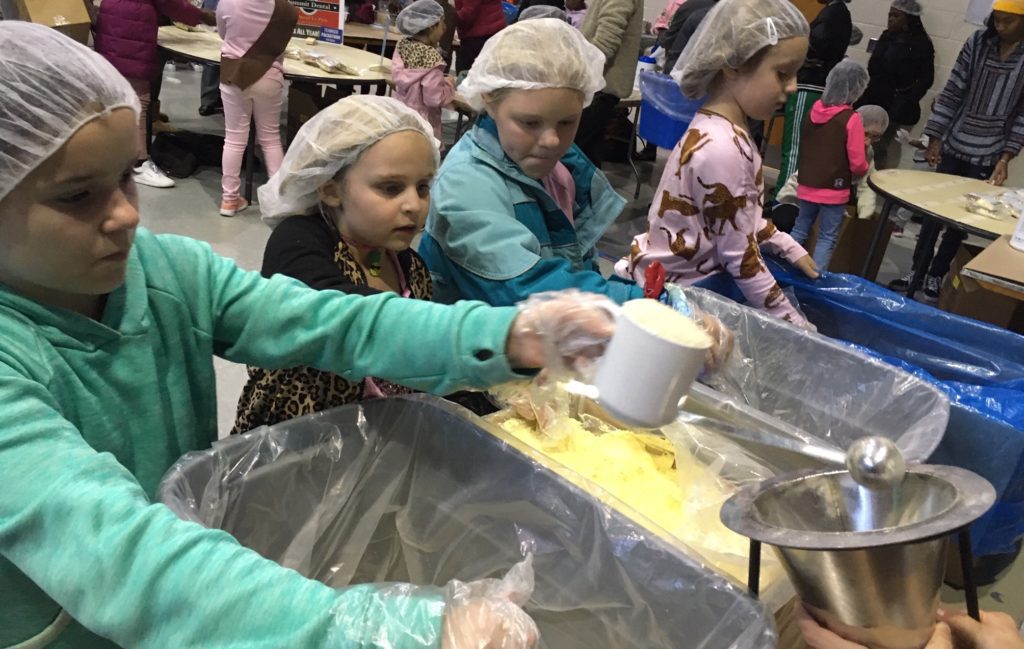By Curt Collier

Now that I’ve “re-emerged” into the Ethical Culture movement after becoming the Bergen Ethical Society’s interim leader, I’ve been getting emails and calls from individuals hoping I’ll come and speak at their Society. While flattering (or perhaps not if I was their last choice), creating lots of platform addresses is just not feasible nor desired at this time.
One of the requests came from Mid-Rivers Ethical Society, which is located just west of St. Louis. It was nice to hear they’re still active, as I hope I played some small role in their founding. Bob Greenwell their former leader (who was my leader-in-training intern), had invited me to Mid-Rivers to do a couple of workshops and platforms when that Society was still in formation. I remember giving a workshop on how to raise an ethical child and we had scores of people in attendance (well over 100). Looking back on that presentation, I’ve recently been pondering: What would I have said differently?

In my workshop, I shared research that there were five indicators that a child might develop into an ethical person and how such focus areas might be cultivated. Unfortunately, anytime you’re looking at the impact any training or experience has on youth development, you realize that an assessment of the efficacy of that programming requires years to test, and even so, the frontal cortex, which plays a crucial role in our ethical decision-making, doesn’t even mature until around age 25. In 25 years a lot can happen that further shape a youth’s identity and may confound your “experiment,” if we can crassly call it that.
I’ve been enjoying reading famed neuroscientist Robert Sapolsky’s book “Behave: The Biology of Humans at our Best and Worst,” and am happy to see that my own approach wasn’t too far off the mark. Sapolsky is one of the nation’s leading thinkers in cognitive development and I encourage you to check out the myriad of his videos that are posted on-line. Ten years after my workshop, I’m happy (and relieved) to report some of my prior research still holds true today. Luckily, I had found some good models and the sources I drew upon have stood the test of time.
What parents can do
So, given all of this, how does one raise a moral child and what can parents do to help that along? Well here are a few crib notes from that workshop. There isn’t space to cover everything here, and perhaps if there is interest I can repeat the workshop in Bergen.
First is to foster emotional intelligence. The better youth are at being in touch with their own emotions, the better they are at recognizing (and hopefully acting upon) the emotional states of others. Literature would suggest that parents and guardians who are equally in touch with their own emotions, share their own (healthy) emotional states with children to model this, and who encourage youth to expand their use of emotive language beyond happy and sad states, help foster emotional intelligence. Having healthy emotional states helps not only in recognizing the needs of others, but also is a predictor not only of acting ethically, but making good choices of actions when we do. It is also crucial for healthy relationships later on, which is a major factor in reciprocity, a keystone of ethical action.
The second is a capacity to reason. It should be obvious why this is important, but challenging to foster as children pass through several stages of cognitive development, which impacts their ability to reason fully. One important way this can be fostered in a home is by engaging youth in rule- and decision-making. Youth actually flourish better in such homes, as learning to play by and negotiate rules is important in understanding how the world works. In places where the rules change frequently, where there is too much chaos, or where youth hear only “Because I said so,” such experiences don’t help the youth make sense of decision-making. Youth love discussing rules (watch them play a game and argue over “rules”), and this is one of the ways they make sense of the world. If the rules change or appear arbitrary, this hampers the development of an internal locus of control, researchers find, and thus the children are more likely to grow up to be adults where things are just left “to chance.”
Building ethical habits
I’ll skip some of the other indicators for now, but one of the biggest factors that impact ethical development in children is the extent to which ethical actions become habit early on. This includes not only how we treat siblings or take our turn feeding the dog or other such chores, but also the extent that our parents engage in ethical actions outside the home. For example, there was one study that looked at who volunteered as a cook at a homeless shelter. The researchers said there were two types of volunteers, those who came for brief periods of time and eventually quit and those who stayed for years and years. The only commonality they found for the latter group out of a host of other variables was a sense of “I’ve always done this.” Come to find out, the reason this group had such staying power is because their parents used to push them to engage early on (even if they reported being “forced” to do so), and now such actions are done completely out of habit.
Routine, ethical habits were also Sapolsky’s biggest neurologic basis for the perpetuation of these actions into adulthood. Much like driving a car, riding a bike, automatically remembering to bring your own bags to the grocery store, or volunteering an hour or so each week, ethical actions are more likely to feel natural if this is just part of something we do. The good thing is that habits can be newly developed. Sure, new actions are awkward at first, but eventually our brain, perhaps to contain energy needed elsewhere, automatically selects for certain functions that are routine. Build in ethical habits early, and they literally become part of our nature.
Maintaining community
Political Scientist Robert Putnam wrote about the implications of this in his groundbreaking book “Bowling Alone: The Collapse and Revival of American Community.” He argued that during the ‘60s and ‘70s, liberal families were challenging the stifling conformity of groups and were arguing for “dropping out” and doing their own thing. During this same time, conservative groups were still forcing their children to go to church, to attend events at the VFW hall or Knights of Columbus, and so on. The result, Putnam suggested, is that conservative groups, perhaps out of habit, were far better at community organizing —and community maintaining —than were liberal groups. I’ll leave it to you to decide whether he was right, but certainly liberal churches and organizations are nowhere near as large or as well-organized, and perhaps habits are one of the reasons.
Take from this what you will, but at the very least, remember the role that fostering ethical habits plays in our cognitive processes and the impact they have on our children and on our community. Having youth show up to Sunday School—especially the ones that hold true to our values—is important. So is volunteering your time routinely each week. Ideally, the Bergen Society might be a place where you can do both.
Curt Collier is interim leader of the Ethical Culture Society of Bergen County.


